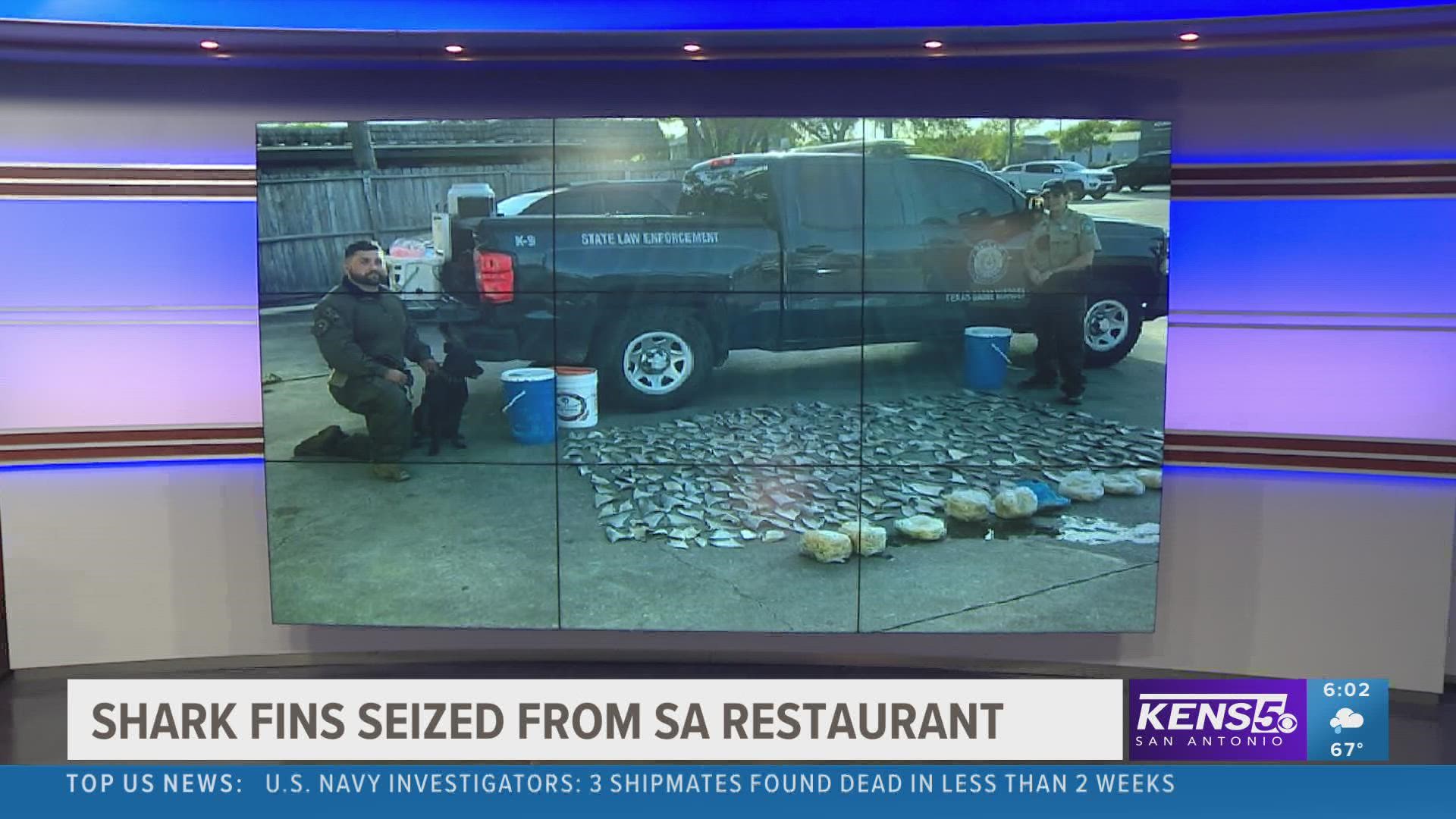SAN ANTONIO — It's a single still picture that has attracted a tidal wave of passionate comments on social media.
All day Tuesday, people expressed outrage over what they call the cruelty the photograph represents.
Texas Game Wardens posted a picture to Facebook showing shark fins they said were seized from a San Antonio restaurant last week.
Because the investigation is ongoing and because the Bexar County District Attorney has a say in how the case will be prosecuted, Texas Game Warden Kevin Winters said his agency is not naming the restaurant at this time.
“Because a business is involved, we have to gather all the facts and see who is actually involved. Sometimes, the District Attorney will request that we file against the business itself,” Winters said.
Winters said he understands the outcry from the public, as Texans are passionate about protecting natural resources.
“Texans, overall, they love the wildlife we have here. They love our waterways. They love our oceans. And so we want to do whatever we can to protect them,” Winters said.
Shark ‘finning’ has been illegal in Texas for years, Winters said, because it is a waste of resources and a threat to the ecosystem.
“What they do is, they catch the sharks, they take the fins off, they throw them back in the ocean, ultimately leaving the sharks to die,” Winters said, adding ““Multiple states throughout the United States have been jumping on board to protect the species because every year there's anywhere between 70 to 100 million shark fins that are taken from waters across the world.”
Winters said because his agency has a responsibility to inspect businesses that sell aquatic resources, one of his regular duties is restaurant inspections.
“The biggest concern is human health, to make sure that consumers don't get sick,” Winters said.
Being able to verify where a product came from is an important part of keeping the human food chain safe, Winters said.
“Particularly oysters. If people consume oysters from water that has been affected, and then they end up turning up ill, we want to be able to draw back to where those oysters came from, so we do a lot of inspections on invoices,” Winters said.
With regard to the current case, Winters said he became aware that a local restaurant might be offering shark products.
“I observed something that caught my interest and drew me in to go inspect that facility,” Winters said.
With his K-9 partner Bailey the Labrador, Winters said an inspection turned up 381 whole shark fins and 29.2 pounds of frozen shark fins inside the restaurant’s commercial freezer.
“There is not a legitimate source for sharks fin because it is illegal in the state of Texas to possess it for sale,” Winters said.
Winters said the penalty range for the Class B misdemeanor is up to 180 days in county jail and / or up to a $2,000 fine.
Winters said Bailey, who has been trained to alert on a number of different aquatic species, had no trouble identifying the illegal product.
“Shark was one of the first odors she was introduced to so she was working. She knew what we had. She's extremely intelligent. She runs me more than I run her. She's a great partner,” Winters said.
As for what’s next, Winters said they are getting ready to present the case for prosecution.
“We seized all the shark fin that was on site and informed them that we would be contacting the Bexar County's District Attorney's office and letting them know what's going to take place from this point forward,” Winters said.
Winters said the ultimate goal is to pay the bounty of the state’s natural resources forward to the next generation.
“We're trying to have the opportunity for my kids and their kids and future generations to enjoy the outdoors and the waters and enjoy all the animals that we have available to us. If we continue to do this we’re going to deplete the resource and there won’t be any sharks. They will be extinct. It will be another series of dinosaurs where we hear about them but we don’t know because we never got to lay our eyes on them,” Winters said.

